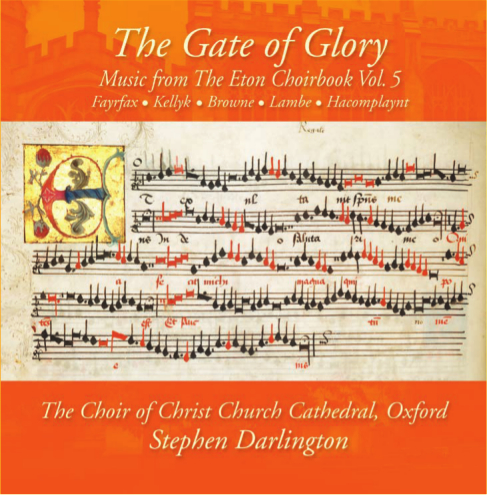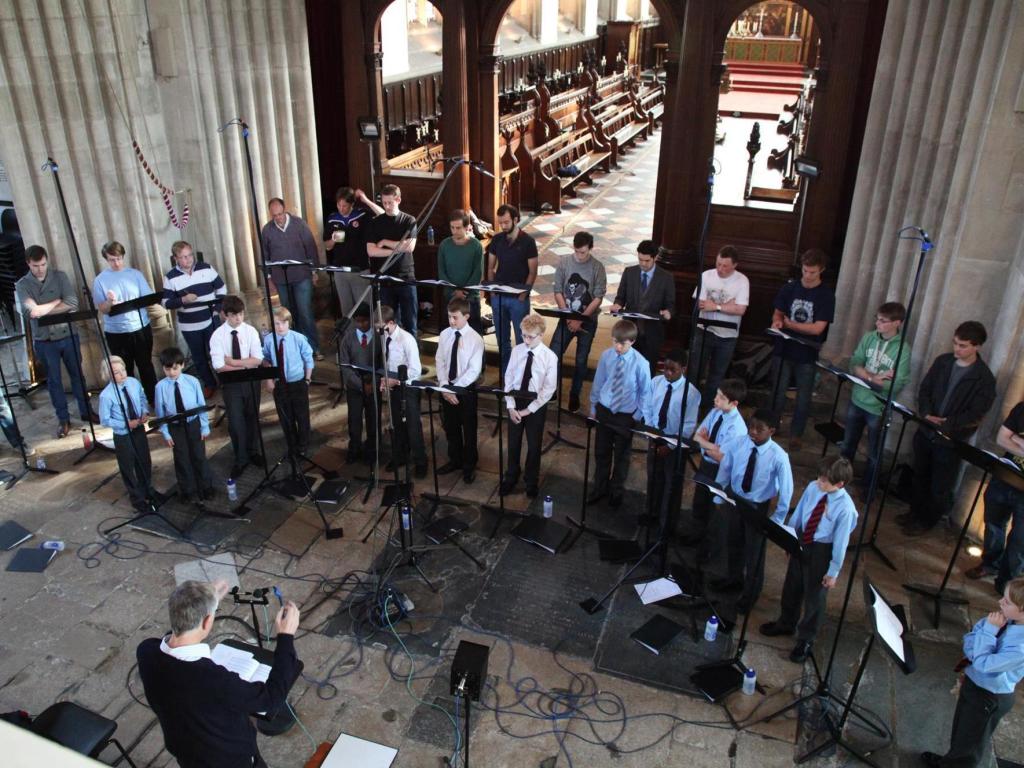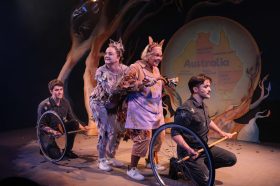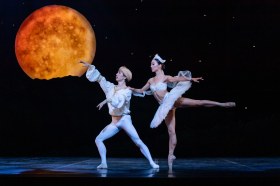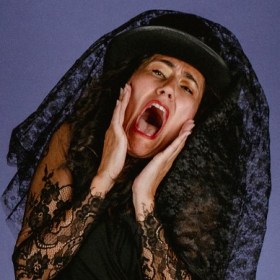Image: The Eton Choirbook – The Choir of Christ Church Cathedral, Oxford.
Have you heard of a composer called John Fawkyner? How about Robert Fayrfax, William Cornysh, Walter Lambe, Richard Davy or John Browne? You could be forgiven for drawing a blank as I did when reviewing these five CDs. There is little biographical material on each composer while their dates of birth and death are only approximated. They are all pre-Reformation British Tudor composers who flourished in the mid to late 15th century and who were employed in various musical posts in colleges and cathedrals. The work of each appears in three large, luxuriously illuminated volumes called the Eton Choirbook, one of the few documents of sacred Latin music to survive the Reformation, even though it is incomplete. This Marian music was compiled in the first years of the 16th century for use in daily devotions at Eton College Chapel. Three of the six Magnificats and 21 motets have here been recorded on the English Avie label over the past eight years by the Choir of Christ Church Cathedral Oxford under its director Stephen Darlington. Three of these works are here recorded for the first time. These motets and settings, some upwards of twenty minutes in duration, were sung at the daily Salve ceremony at Vespers before the wall paintings of the Blessed Virgin Mary in the college’s chapel. During Lent the Salve Regina was sung and outside Lent another antiphon to Mary.
Explaining the inception of this ambitious project Stephen Darlington writes:
‘About 10 years ago I was thinking about a project to follow our recording of Taverner’s Missa Gloria Tibi Trinitas on the Avie label. I was not really familiar with the Eton Choirbook repertoire, but had heard the fine recordings by The Sixteen. Tim[othy] Symons is a former undergraduate of mine from Christ Church and I involved him in the Taverner project. He specialises in editing music of 15th/16th centuries and we conferred over ECB music. My object was to perform this music again with an all-male choir and to show that, difficult though it is, it can be done with the forces for which it was originally intended. We also wanted to record previously unrecorded works. It has been a voyage of discovery for me, primarily the range and diversity of the material and the individuality of the compositional voices of the composers.’
The Early-Tudor period in England provided music for worship of extravagant luxury. This was before chordal progressions, from bass up, providing the musical momentum. Instead, species counterpoint is melodically ‘spun’ like golden threads in a refined and finely woven sonic tapestry. From great blocks of sound in multi-voiced sections, counterpoint is reduced to two or three parts in passages that resound with certainty and resolve.
Darlington continues:
‘The challenge has been to mould performances which have the integrity of a real liturgical experience, not self-conscious but somehow natural and flowing in their effect. The singing requires great skill but yet shouldn’t sound difficult. The revelation for me has been the huge variety of style. The range of sonorities and textures is incredible, as is the variety of approaches to ornamentation.’
Darlington reminds us that his choir remains exactly the same in numbers of boy choristers and scholars occupying the very same stalls provided for the ensemble since 1526. His choral scholars are certainly no vocal minnows, all singing with soloistic confidence, and the boys are also neither hesitant nor timid in their forthright and very confident musical expression. The overall effect of musicianship and technical accomplishment is truly remarkable. Everything here is sung with commitment, sensitivity and virtuosity. I began to write of the highlights of these recordings but there were so many I abandoned the task.
Stephen Darlington is about to retire as organist and tutor in music of Christ Church Cathedral and Choragus of the University of Oxford and his legacy might indeed be measured by these five very fine recordings leaving no doubt that the tradition he has maintained since acceding to this post in 1985 is of profound depth and unmatched value.
Praise should also be accorded to the late David Trendell who produced three recordings and Jeremy Summerly his successor, the Tonmeister for all five CDs Simon Fox-Gal and Simon Foster from the Avie label who embraced the project from its inception. Finally, for a great and mighty effort, all praise to Stephen Darlington and his remarkable choristers.
Rating: 5 stars out of 5
The Eton Choirbook
The Choir of Christ Church Cathedral, Oxford
Stephen Darlington, director
Volume 1 (released 29 June, 2009) – More Divine Than Human – AV2167
Volume 2 (released 29 April, 2013) – Choirs of Angels – AV2184
Volume 3 (released 29 September, 2014) – Courts of Heaven – AV2314
Volume 4 (released 9 September, 2016) – The Sun Most Radiant – AV2359
Volume 5 (released 17 November, 2017) – The Gate of Glory– AV 2376
